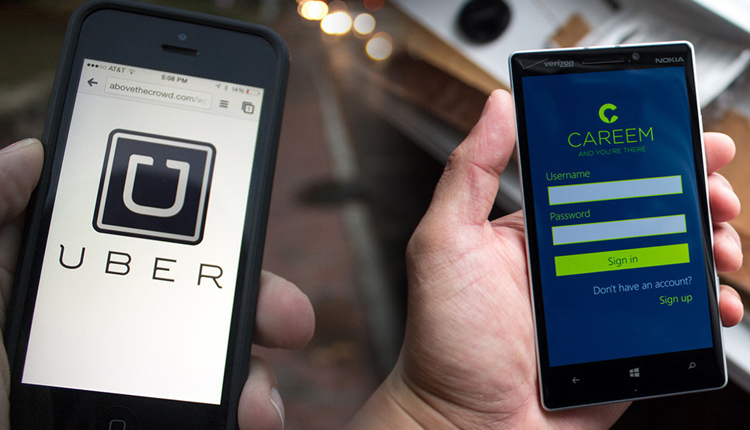Uber and Careem will defend their rights to operate in Egypt in court on Saturday, appealing against an administrative court’s ruling to suspend the licences of ride-hailing companies.
Forty-two Egyptian taxi drivers filed a lawsuit in the administrative court a year ago against U.S.-based Uber and its Dubai-based competitor Careem, arguing they were illegally using private cars as taxis. They also claimed that the two firms were registered as a call centre and an internet company, respectively.
In March, the administrative court ordered the government to suspend the licences of the two ride-hailing companies.
However, the March decision had not yet been applied. Uber and Careem applied in April to another court, the Cairo Court of Urgent Matters, which said that the previous ruling should be suspended and the two firms should be allowed to continue work until a final decision from the Highest Administrative Court.
The government appealed against the March ruling before the Highest Administrative Court. Uber followed suit.
Careem said it had not received any official request to stop operations in Egypt, and continued to do business as normal.
In May, Egypt’s parliament passed a law regulating the ride-sharing apps, in efforts to end a lawsuit that could shut Uber and Careem’s operations down in one of their biggest markets but imposing new fees and data sharing requirements.
The new law stipulates that ride-sharing companies obtain five-year renewable licences for a fee of 30 million Egyptian pounds ($1.7 million) and that drivers pay annual fees to obtain special licences to work with the company.
“This is a major step forward for the ride-sharing industry as Egypt becomes one of the first countries in the Middle East to pass progressive regulations,” Uber said in a statement.
“We will continue working with the prime minister and the cabinet in the coming months as the law is finalised, and look forward to continuing to serve the millions of Egyptian riders and drivers that rely on Uber.”
The law also requires the companies to retain user data for 180 days and share it with authorities on request and according to the law.
Egypt is Uber’s largest market in the Middle East, with 157,000 drivers in 2017 and 4 million users since its launch there in 2014. It is one of Uber’s fastest-growing markets, its general manager in the country, Abdellatif Waked, has said in earlier remarks to state news agency MENA.
The San Francisco-based company said last year it was committed to Egypt despite challenges presented by sweeping economic reforms and record inflation. In October 2017, Uber announced a $20 million investment in its new support centre in Cairo.
Uber has faced worldwide regulatory and legal setbacks amid opposition from traditional taxi services. It has been forced to quit countries such as Denmark and Hungary.


